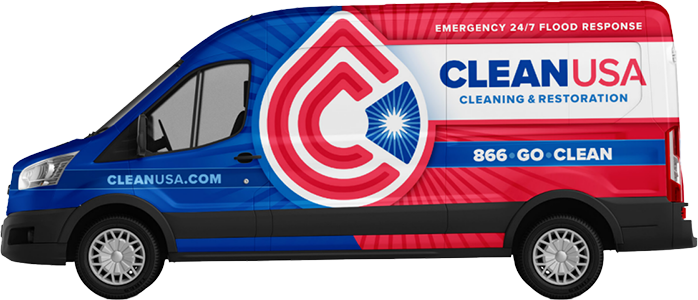Water damage can be a significant concern for homeowners. Whether it’s from a burst pipe, heavy rainfall, or a leaky roof, water damage can cause costly repairs and even health hazards. Fortunately, there are steps you can take to prevent water damage and safeguard your home.
In this section, we will provide you with essential water damage prevention tips that can help you protect your home and avoid costly repairs. By implementing these strategies, you can reduce the risks associated with water damage and ensure your home remains safe.
Key Takeaways:
- Regularly inspect your plumbing system to identify and fix leaks promptly.
- Ensure proper drainage by clearing gutters and downspouts and checking the grading.
- Consider installing sump pumps and backup systems for added protection.
- Maintain your roof by inspecting it regularly and cleaning gutters to prevent debris buildup.
- By taking these proactive measures, you can protect your home from the risks and expenses associated with water damage.
Identify and Fix Leaks Promptly
One of the primary steps in water damage prevention is identifying and fixing leaks promptly. Regularly inspect your plumbing system for any signs of leaks, such as damp spots, water stains, or a sudden increase in your water bill. If you discover a leak, address it immediately to prevent further damage.
| Consequences of Ignoring Leaks | Importance of Fixing Leaks Promptly |
|---|---|
| – Mold and mildew growth | – Prevent further water damage to your property |
| – Weakened structure due to water accumulation | – Save money on costly repairs |
| – Electrical hazards | – Avoid health hazards associated with mold and mildew |
Ignoring leaks can cause serious damage to your home and health hazards for you and your family. Fixing leaks promptly can help you avoid the consequences of water damage and safeguard your property.
Next, we will discuss the importance of ensuring proper drainage for water damage prevention.
Ensure Proper Drainage
Proper drainage is crucial in preventing water damage to your home. Your gutters and downspouts play a vital role in directing rainwater away from your property. Ensure that they are clear of debris to allow water to flow freely.
In addition to cleaning your gutters, you should also check the grading around your home. The slope should direct water away from the foundation to prevent pooling and potential damage.
| Signs of Poor Drainage | What it Can Cause |
|---|---|
| Water pooling around your foundation | Foundation damage, mold growth, flooded basement |
| Damp spots or stains on interior walls | Mold growth, structural damage, decreased indoor air quality |
| Cracks in the foundation or walls | Structural damage, weakened foundation |
By ensuring proper drainage around your home, you can significantly reduce the risk of water damage and protect your property. Regular inspections and maintenance of your gutters and grading can help you identify and address potential issues before they cause significant damage.
Install Sump Pumps and Backup Systems
If your basement is prone to flooding or excessive moisture, installing a sump pump is crucial for preventing water damage. Sump pumps work by collecting water in a pit and pumping it away from your home’s foundation. This can help protect your property from water damage and mold growth.
However, even a sump pump can fail during power outages or heavy rainfall. That’s why it’s also important to consider installing a backup system. Backup systems work by using battery power or a generator to ensure continuous protection, even if your main sump pump fails.
| Sump Pumps vs. Backup Systems | Sump Pumps + Backup Systems |
|---|---|
|
|
Investing in a sump pump and backup system can be a wise decision for homeowners, especially those in flood-prone areas. Consult with a licensed professional to determine the best options for your home and ensure proper installation and maintenance. Taking proactive measures now can save you significant expenses and headaches in the future.
Maintain Your Roof
Your roof is one of the most critical components of your home’s water resistance. It is crucial to regularly inspect and maintain your roof to prevent water damage.
Inspect Your Roof: Conduct a thorough inspection of your roof at least once a year. Look for signs of damage, such as missing shingles, cracks, or holes. Check for water stains on your ceilings or walls, which may indicate a leak.
Clean Your Gutters: Clogged gutters can lead to water backup, which can damage your roof. Clean your gutters at least twice a year to prevent debris buildup.
Trim Trees: Overhanging trees can damage your roof during a storm. Trim any branches that are close to your roof to prevent them from rubbing against it during high winds.
Hire a Professional: If you are unsure about the condition of your roof, consider hiring a professional to conduct an inspection. A professional can identify potential issues that you may miss and provide you with recommendations for repairs.
Following these tips will help ensure that your roof is in good condition and prevent water damage to your home.
Conclusion
Protecting your home from water damage is crucial for avoiding costly repairs and safeguarding your property. By implementing the strategies outlined in this article, you can take proactive measures to prevent water damage and ensure the long-term safety of your home.
Remember to immediately identify and fix leaks to prevent further damage. Ensure proper drainage by clearing gutters and downspouts and checking the grading around your property. Installing sump pumps and backup systems can provide added protection, especially in areas prone to heavy rainfall.
Maintaining your roof is another essential step in preventing water damage. Regularly inspect your roof and clean gutters to prevent debris buildup and potential leaks.
By following these tips, you can protect your home from the risks associated with water damage and enjoy greater peace of mind. Stay vigilant and take the necessary steps to prevent water damage before it happens.
FAQ
How can I prevent water damage in my home?
To prevent water damage, you can implement various strategies such as identifying and fixing leaks promptly, ensuring proper drainage, installing sump pumps and backup systems, and maintaining your roof.
How do I identify leaks in my home?
Look out for signs of leaks such as damp spots, water stains, or a sudden increase in your water bill. Regularly inspect your plumbing system to catch any leaks early.
What should I do if I find a leak?
If you discover a leak, address it immediately to prevent further damage. Depending on the severity, you may need to call a professional plumber for assistance.
Why is proper drainage important in preventing water damage?
Proper drainage ensures that water flows away from your home’s foundation, reducing the risk of water seepage and foundation damage. Clear your gutters and downspouts of debris and ensure the grading around your property directs water away from the foundation.
How can sump pumps and backup systems help prevent water damage?
Installing a sump pump in your basement helps to prevent water damage caused by flooding or excessive moisture. Adding a backup system ensures continuous protection, even during power outages or pump failures.
Why is maintaining my roof important for water damage prevention?
A well-maintained roof prevents water from seeping into your home. Regularly inspect your roof for damage, such as missing or damaged shingles, and clean your gutters to prevent debris buildup and potential roof leaks.




